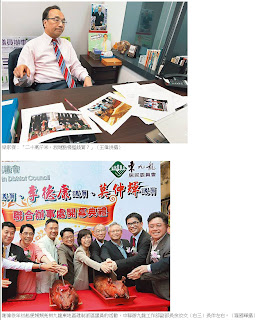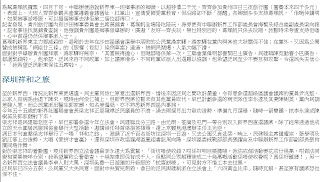By KEITH BRADSHER
Published: May 24, 2012
XI’AN, China — A nationwide real estate downturn, stalling exports and declining consumer confidence have produced what a Chinese cabinet adviser, quoted on the official government Web site on Thursday, characterized as a “sharp slowdown in the economy.”
Though the Chinese economy continues to expand, construction workers are losing jobs in droves and retail sales grew last month at the slowest pace in more than three years. Investments in fixed assets have increased more slowly this year than in any year since 2001.
The most striking feature of the slowdown is that it extends beyond the coastal provinces, which depend on exports and are closely linked to the global economy, to the country’s far more insular interior, including cities like Xi’an here in northwestern China.
China’s unexpected economic difficulties are starting to unnerve investors in world markets, especially commodity markets, as China is the world’s largest consumer of most raw materials and the second-largest consumer of oil.
A deepening slowdown would ripple across the world economy. Until now, China’s economy barreled ahead mostly unhindered as the main engine of global growth, even as Europe struggled with its government debt crisis and the United States limped along with a crippled housing market.
Government indexes show real estate prices are falling in more than half of the country’s top 70 urban markets, Xi’an among them. Standard & Poor’s Ratings Services and Moody’s each issued reports on Thursday warning that many of China’s real estate developers face a severe cash squeeze as apartment sales slow to a crawl. The developers still owe heavy interest payments on bank loans.
“Weak property developers in China are likely to face a test of their survival this year,” S.& P. said.
China’s economy was 8.1 percent larger in the first quarter of this year than a year earlier, but virtually all of that growth took place last year. The economy barely grew in the first quarter compared with the fourth quarter of 2011, and the second quarter of this year is likely to show even less growth from the preceding quarter, said Diana Choyleva, a China economist in the Hong Kong office of Lombard Street Research.
The World Bank also warned on Wednesday of a slowdown.
“Clearly the economy is much, much weaker than most people thought until recently,” Ms. Choyleva said. “They have a real mess on their hands.”
China is the world’s largest importer of a long list of commodities, like iron ore and copper. It has also been a big buyer of European factory equipment and luxury goods. The United States economy is much less exposed to a slowdown in the Chinese economy, with exports of goods to China representing less than 0.7 percent of American economic output last year.
Benefiting from heavy government spending on highways and other infrastructure and voracious demand for apartments as poor laborers arrived from the countryside, China’s inland cities had continued to expand even when the rest of the world’s economy fell into serious difficulty in late 2008 and early 2009. But now the economic troubles are evident here in Xi’an, an economic cornerstone of northwestern China that serves as one of the country’s largest transportation and distribution hubs and a manufacturing center for everything from bulldozers to aircraft components.
Sun Yufang, a wholesale dealer in Xi’an in ovens, ranges and water heaters, said that residents had nearly stopped outfitting new apartments or redecorating old ones.
“We didn’t really feel the global financial crisis, but this year, we’ve really felt it — I don’t see a solution unless people start buying,” Ms. Sun said, sitting in a spacious shop with no customers in sight.
Premier Wen Jiabao expressed concern last weekend about the economy after an inspection tour to Wuhan in east-central China. He then led a cabinet meeting on Wednesday that produced the government’s strongest statement yet.
The government should “place stabilizing growth in a more important position and carry out pre-emptive policy adjustments and fine-tuning more forcefully according to the changing situation,” the cabinet statement said.
An explanatory statement from the official Xinhua news agency drafted on Wednesday and posted on the Chinese government’s Web site on Thursday cited Zhang Liqun, a senior economist advising the cabinet, as saying that, “the sharp slowdown in the economy has aroused attention from policy makers.”
A preliminary reading of a monthly purchasing managers index showed that manufacturing had continued to weaken in May, with the index falling to 48.7 from 49.3 in April; a figure below 50 indicates a slowing sector.
The cabinet called for stimulating the economy through faster construction of railroads, schools, clinics and other infrastructure. With the Chinese economy still heavily dependent on investment spending, some economists are optimistic that China can quickly reignite growth.
“When you’ve got state banks lending to state enterprises to implement the state’s five-year plan, you don’t have a lot of downside to investment,” said Paul Gruenwald, a former International Monetary Fund official in Hong Kong who is now the chief Asia economist at ANZ, one of Australia’s biggest banks.
China has the financial resources to expand government spending sharply. China has a low ratio of debt to economic output, even when sizable local government debts are added to the national debt. Chinese banks have among the world’s lowest rates of loans to deposits, although some banking analysts have questioned whether many loans by state-owned banks to politically influential borrowers will be repaid.
But with the country having finished building much of its infrastructure, it is having a harder time finding further projects that can pass cost-benefit analyses. The Chinese interior has been the biggest beneficiary of infrastructure spending over the last decade, but now shows signs of catching up with the more developed coast.
The Xi’an airport opened a third terminal and another runway on May 3, giving it the capacity to handle as many passengers as John F. Kennedy International Airport in New York, despite considerably smaller daily traffic. Bullet trains connect Xi’an to Zhengzhou, nearly 300 miles to the east, while no fewer than three concentric beltways encircle Xi’an, although traffic jams continue to bedevil the ancient city’s core.
One more big infrastructure project remains: the city opened its first subway line late last year, plans to finish a second line later this year and has begun construction on a third. But crisscross the city these days and there are fewer streets torn up for building projects than in the past.
At the same time, residential real estate construction has slowed sharply after the government imposed a stringent ban last year on the purchase of multiple homes in an effort to discourage speculation and make housing more affordable. Wei Li, a real estate broker in downtown Xi’an, said that prices had fallen 20 percent since the start of this year for new apartments in the hundreds of towers under construction on the city’s periphery, but she said downtown real estate prices were stable. Construction material vendors here, however, say that apartment prices are also falling in downtown neighborhoods.
Developers across the country have responded to the drop in prices by abandoning the longstanding practice of floodlighting construction sites and working around the clock. They have cut back to one daytime shift, sharply reducing the demand for construction workers.
“It’s getting harder and harder to find work,” complained Li Bo, a construction worker here.
Xi’an is best known in the West as an ancient capital of China, a Silk Road entrepôt that is home to the terra-cotta warriors. But modern-day Xi’an also plays an important role in the Chinese economy as a regional economic hub with eight million residents.
Store owners and other traders from across northwestern China converge at large covered markets here to buy goods, making Xi’an one of the best places to take the pulse of China’s interior. And now, that pulse feels weak for consumer spending.
Until late March, Ma Xiechuan sold pork at his butcher shop here by hacking large chunks and handing them to lines of customers to take home and carefully slice and dice. But with sales now down by a third, he has so much extra time that he deftly wields his steel cleaver to produce thin slivers, ready for the customer’s wok.
“It’s the fastest downturn in business I’ve seen in more than 10 years here,” Mr. Ma said.
Yian Leilei, a wholesaler of tablecloths and car seat covers, said that sales nose-dived after Chinese New Year on Jan. 23 and had not recovered. Wang Heiyen, a wholesaler of insulated food and beverage containerssaid his sales were sliding steadily and customers were becoming ever pickier. Ding Lei, the co-owner of a paint and plaster store said his sales had halved since the start of this year. “People are just not buying apartments,” Mr. Ding said. “It was O.K. in 2009. I’ve never seen it as bad as it is now.”
Mayor Dong Jun of Xi’an expressed worry in a post last week on the city’s Web site.
“The economic situation in the whole city from January through April this year is not that optimistic,” he said. “Maintaining the growth rate continues to be very difficult.”
=============================================
中國西安- 一輪全國性的樓市低迷、出口放緩、消費者信心下滑已經導致“經濟急劇減速” ,中國政府官方網站週四援引一位國務院參事的此番描述。
儘管中國經濟仍延續著擴張態勢,但建築工人正面臨著群體性失業,零售業在上月出現了三年多來最緩慢的增長。該年度對固定資產投資的增速放慢至2001年以來的最低點。
這一輪經濟放緩最顯著的特徵是其波及範圍超出了與全球經濟聯繫緊密的沿海出口導向型省份,深入至該國更為閉鎖的內陸腹地,包括位於中國西北部的西安這樣的城市。
中國突如其來的經濟困境開始令世界市場上的投資者們感到不安,尤其涉及到大宗商品市場,因為中國消費了世界上大部分的原材料,還是第二大原油消費國。
危機倘若進一步惡化,將不可避免地傳導至世界經濟。在此之前,作為全球增長的主要引擎,中國經濟大體上是一路高歌猛進,即便歐洲於債務危機的泥潭里掙扎,以及美國伴隨著萎靡不振的住房市場蹣跚前行。
政府數據顯示,中國最核心的70個大中城市中有一半以上的房價正在下跌,西安居於其中。評級機構標準普爾(Standard & Poor's)和穆迪(Moody's)週四分別發布報告,警告說由於住宅銷量滯緩,中國眾多房地產開發商面臨著嚴重的資金周轉困境。開發商還背負著沉重的銀行借貸利息款。
“中國脆弱的地產商在今年可能會面對一場生死考驗,”標普表示。
同先一年同期相比,中國第一季度的經濟增長率為8.1%,但事實上所有的增長都是發生在去年。同2011年第四季度相比,第一季度的經濟幾乎持平,且今年第二季度似乎較前一季度增長更為遲緩,黛安娜•喬伊列娃(Diana Choyleva)如是說道,她是朗伯德街研究所(Lombard Street Research)駐香港的一名研究中國的經濟學家。
世界銀行(World Bank)週三也對減速發出警告。
“很明顯,中國經濟要比大部分人此前所想像的要虛弱得多,” 喬伊列娃說道。 “他們手中擺放著一個爛攤子。”
中國是世界上一系列大宗商品的最大進口國,如鐵礦石和銅。它還成為了歐洲工廠設備和奢侈品的一個大買家。美國經濟受中國經濟減緩的影響要小得多,去年美國對華商品出口只占美國經濟輸出的不到0.7 %。
在2008年末到2009年初,即便當世界其它地方的經濟深陷困境之時,得益於政府對高鐵和基礎設施的龐大投資以及進城的農村廉價勞動力對住房的旺盛需求,中國內陸城市依舊持續發展。但如今,在西安,經濟困局已經顯現。作為中國最大的運輸和集散樞紐之一,西安是中國西北部的經濟基石,同時也是一個製造業中心,生產範圍從推土機到飛機零部件,涵蓋一切。
孫玉芳(音譯)是西安的一位烤箱、爐灶和熱水器批發商,說居民幾乎不再裝修新房或重裝舊房了。
“我們過去並沒有真正感受到全球金融危機,但是今年,我們著實覺察到了——我對眼下的局面感到無能無力,除非民眾開始消費,”孫玉芳如是說道,她坐在敞亮的店舖裡,門庭冷落。
在視察了中國中東部城市武漢之後,溫家寶總理上週末表達了對經濟的擔憂。然後他於週三主持召開國務院會議,發出了迄今為止最強有力的政府聲明。
政府應該“把穩增長放在更加重要的位置,要根據形勢變化加大預調微調力度,”政府聲明中說。
官方的新華社週三起草的一份解釋性聲明於週四發表在中國政府網站上,援引了國務院高級經濟學家張立群的說法,“經濟劇烈下滑已引起政策制定者的關注。”
月度採購經理人指數(PMI)的初值顯示出5月份的製造業仍在繼續走弱,指數從4月份的49.3下降至48.7,該數值低於50則表明行業發展放緩。
國務院要求通過加快鐵路、學校、診所以及其它基礎設施的建設來刺激經濟。由於中國經濟仍然高度仰賴投資需求,有經濟學家對中國能很快重回增長軌道持樂觀態度。
“當國家銀行都將資金借貸給國企去執行政府五年計劃時,你就不會有太多用於投資的底錢,”一名身在香港的前國際貨幣基金組織(IMF)官員顧文德(Paul Gruenwald)這麼說道,他現為澳洲最大銀行之一的澳新銀行(ANZ)首席亞洲經濟學家。
中國可以通過操作財政槓桿來大幅擴大政府開銷。相對於經濟產出而言,中國的負債率處於低水平,甚至把上規模的地方政府債務疊加到國家債務層面也無關大體。中國的銀行有著世界上最低的貸存款比率,儘管有銀行分析師對國有銀行將款項借貸給具有政治影響的借款人是否會獲得償還表示質疑。
但隨著國家大量的基建均已完工,進一步找尋能夠通過成本效益分析的項目工程正演變為一項更棘手的難題。中國內陸地區成為了過去十年基建投資最大受益方,但現在卻顯現出帶給更發達的沿海地帶負面影響的跡象。
西安機場第三航站樓和另一條跑道在5月3日投入運營,得以容納如紐約肯尼迪國際機場(John F. Kennedy International Airport)那樣多的乘客,儘管相比其每日客流量要少得多。連接西安與鄭州的高鐵,全程從西向東近300英里,差不多相當於西安的三條環城高速之和,不過交通擁堵仍然肆虐著這座古老城市的核心區域。
一個更大的基礎設施項目已經上馬:這個城市在去年下半年開通了它的第一條地鐵線,第二條線路計劃於今年晚些時候完工,並且已經開工建設第三條幹線。但是縱橫交錯的城市街頭,相較過去來說,可通過拆遷來為建設項目讓路的街道已所剩無幾。
與此同時,為了防止投機行為及使住房價格轉向合理浮動,政府去年出台了旨在限制購買多套房的嚴厲禁令,在此之後,民用房地產建設的速度驟降。一名位於西安市中心的房產經紀人魏麗(音譯)說,自從今年初,當這座城市周邊有數百棟住宅型高樓正處於建設週期時,房價已經下跌了20%,但她表示城市中心區的房價還是處於穩定狀態。然而,這裡的建材經銷商卻說市中心的住宅價格也正在回落。
全國的開發商對於房價下跌的反應便是告別長年累月的泛光照明工地,不再全天候24小時施工。他們已經將交接班削減為白日一次,大量地降低了對建築工人的需求。
“找工作正變得越來越艱難,”這裡的一名建築工人李波(音譯)抱怨道。
在西方,西安最為人熟知之處在於作為中國的古都及絲綢之路上的貿易中心,還是兵馬俑的故鄉。但是作為一個擁有八百萬居民的區域經濟中心,現代西安也在中國經濟領域扮演著重要角色。
店鋪老闆們和其它來自中國西北各處的商人們匯聚到這裡的大型有蓋市場購買商品,也使得西安成為掌控中國內陸脈搏的最佳地點之一。現在,這條脈搏感受到了消費的疲軟。
在3月底之前,馬謝川(音譯)在他這兒的肉店賣豬肉,他會將大塊肉切割,遞給排隊的顧客們,他們會帶回家再將其切成薄片和小方塊。但是隨著現在銷量下降了三分之一,他有大把閒暇時間,只需駕輕就熟地揮舞起鋼刀,大塊肉隨即被切成薄片,只待顧客將其下鍋了。
“這是我在這兒十多年來所目睹的生意上最快速的衰退,” 馬謝川說道。
顏磊磊(音譯)是一名桌布和汽車座套批發商,說銷量在1月23日的中國新年之後暴跌,至今不見復甦。王黑岩(音譯)是一名食物和飲料保溫瓶批發商,說他的銷量也在穩定下滑,且顧客甚至變得更為挑剔了。丁磊是一家塗料和石膏店舖的共同所有人,說從今年年初開始到現在,他的銷量已經減半了。 “人們都不買房了,” 丁磊說。 “2009年的時候還無所謂。我從沒有見過像現在這般糟糕的狀況。”
西安市市長董軍於上週在該市官網發布的一篇稿子中表達了擔憂。
“今年1至4月份全市經濟運行情況不容樂觀, ”他說道。 “ 保持增長的形勢依然嚴峻。 ”

























































